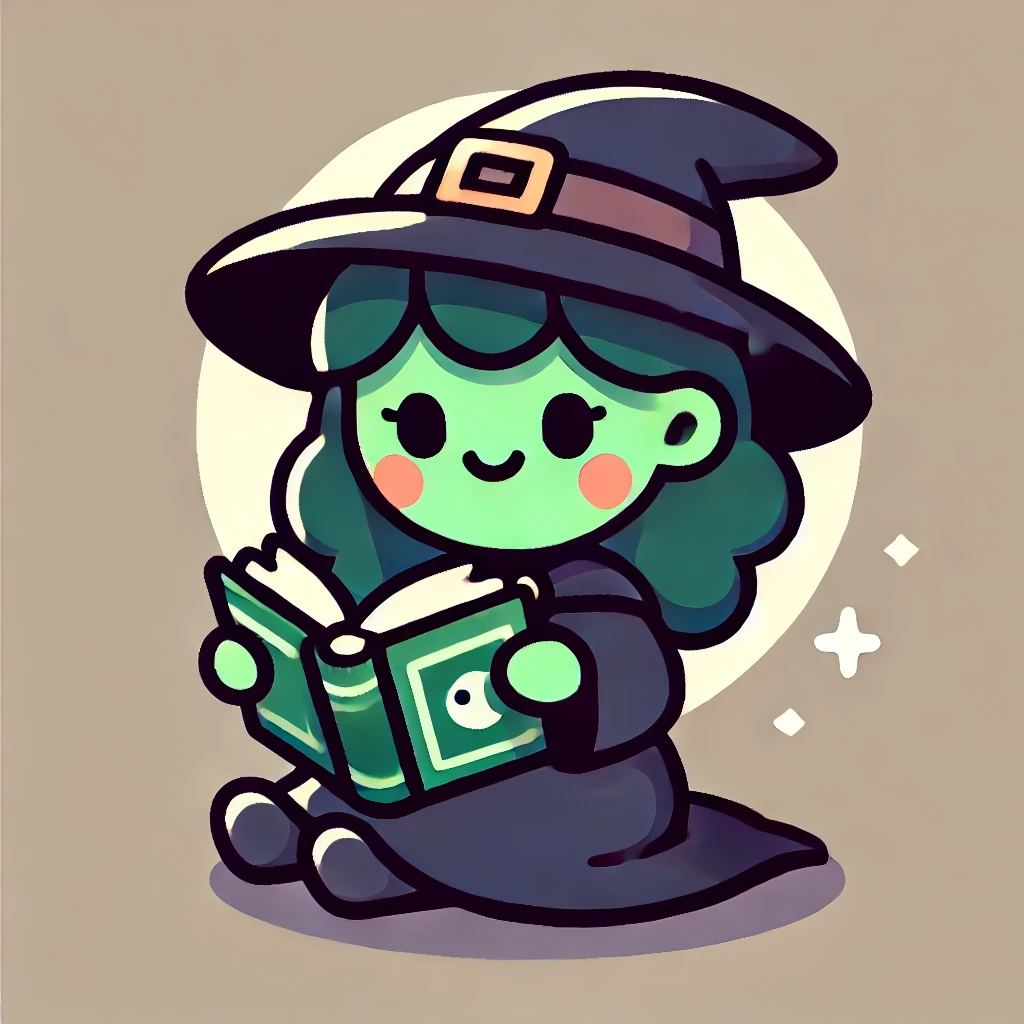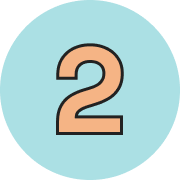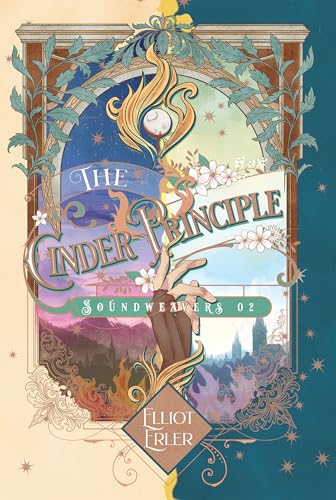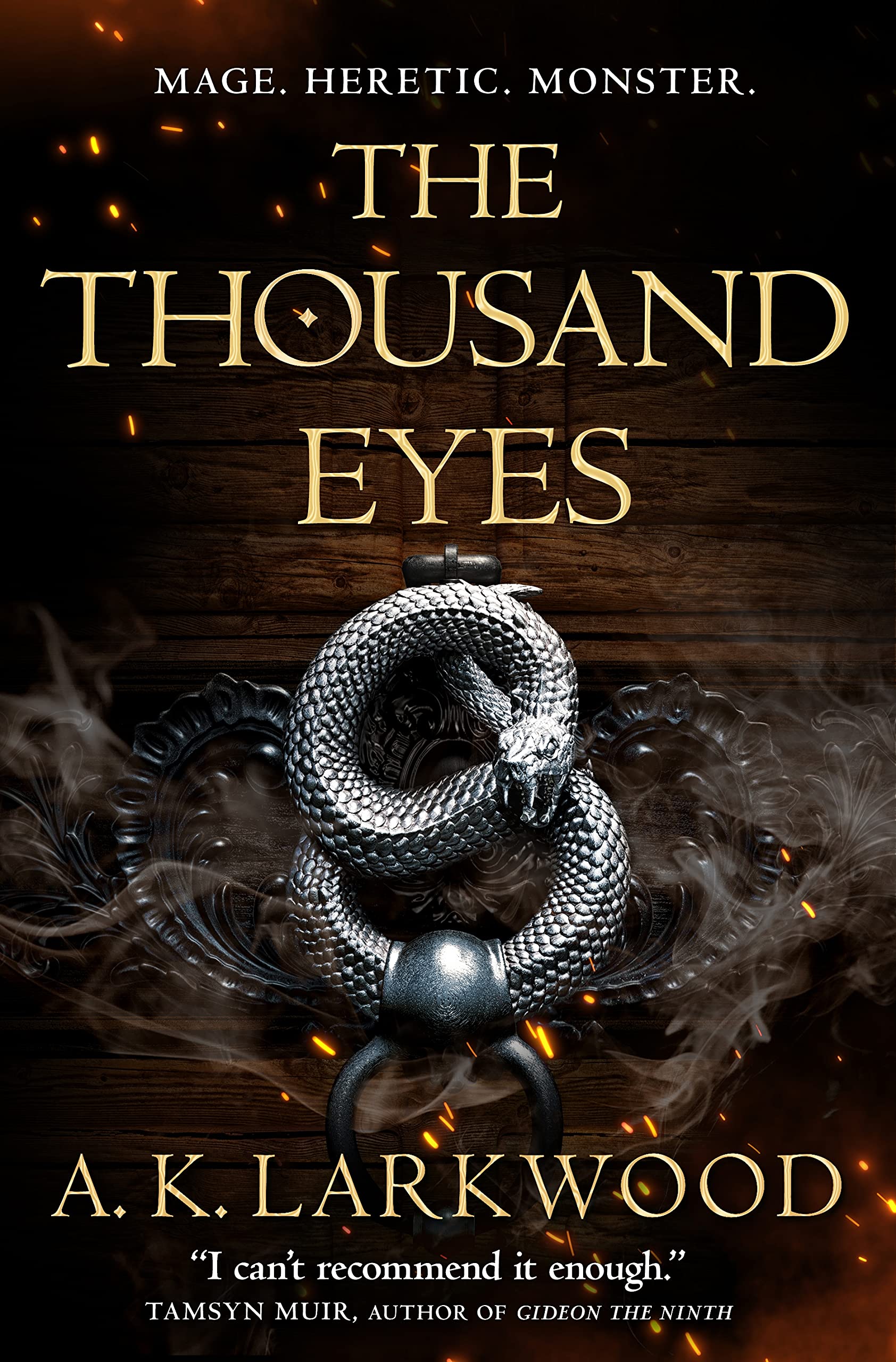Topfenkuchen DNF'd a book

Warrior Cats - Die Welt Der Clans. Das Gesetz der Krieger
Erin Hunter
Topfenkuchen commented on a post from the Pagebound Club forum
so lately, following the bookish trends and so forth, there's been a great buzz about "dark fantasy" and i find myself wondering what, exactly, is meant by it. is it an aesthetic, all about corvid motifs and decadent tropes? is it meant to signify a mood or a tone? or is it about the content of the fantasy novels?
i am finding myself confused about what makes any given fantasy novel "dark fantasy," as by my reckoning (and let's pls keep spoilers to a minimum overall here) the darkest fantasy book i've ever read is the poppy war by r. f. kuang and it's not even a competition, yet i've never once seen it shelved or listed as "dark fantasy." then again, when i think about what makes a book "dark" for me, it comes down to something a lot like bleakness conveyed through both the events of the narrative and the attitude the book takes towards these events. so perhaps there is a mismatch between how i would define darkness and how the e.g. barnes and noble shelvers do.
so then!! what makes a book "dark fantasy" to you? do you consider it a mood, a tone, an aesthetic, a matter of content, a cynical marketing ploy, a secret other thing, all of the above? what do you think?
Topfenkuchen finished a book
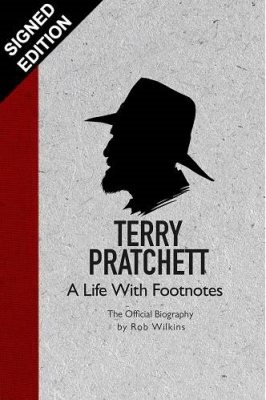
Terry Pratchett: A Life With Footnotes: The Official Biography
Rob Wilkins
Topfenkuchen created a list
Life changing experience
There was a "before I read the book" and "after I read the book" timeline.
0



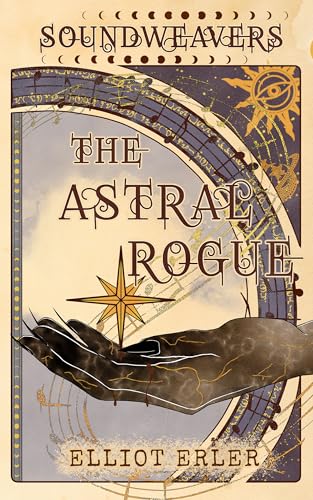


Topfenkuchen started reading...

Terry Pratchett: A Life With Footnotes: The Official Biography
Rob Wilkins
Topfenkuchen started reading...

Warrior Cats - Die Welt Der Clans. Das Gesetz der Krieger
Erin Hunter
Topfenkuchen started reading...

Narrenturm (Trylogia husycka, #1)
Andrzej Sapkowski
Topfenkuchen started reading...

Phantasma
Kaylie Smith
Topfenkuchen finished reading and wrote a review...
*ੈ✩‧₊˚ Worldbuilding ✸
Larkwood builds an enormous, odd, and wonderfully alien world, full of collapsing empires, strange gods, and half-rotted temples. The sheer strangeness of it is refreshing, but it’s also overwhelming at times. Instead of slowly letting you feel your way into it, the books occasionally stop to name-drop every term and corner of the multiverse, like a tour guide determined you not miss a detail.
It’s rich, yes, but there’s a difference between immersive and overloaded. Trust the reader more, and the texture of the world would come across even stronger.
*ੈ✩‧₊˚ Characters ✸
This is where the duology earns its staying power. Csorwe (I hope I wrote it correctly, made me stop each time through the story) is flawed, prickly, sometimes infuriating - which makes her feel alive.
The supporting cast isn’t just scaffolding for her arc; Tal in particular has a personality big enough to run away with the book, and Sethennai is manipulative in ways that stay with you long after you put the novel down.
These aren’t YA-style prodigies written too young - they’re adults making adult messes, with motives and grudges that don’t dissolve just because the plot demands it.
That grounding makes their relationships cut deeper.
*ੈ✩‧₊˚ Writing ✸
Larkwood’s prose is at its best when it leans into dry wit and the sheer weirdness of the setting. There are moments where the narration trusts you to read between the lines ( a raised eyebrow, an unspoken slight, a piece of backstory hinted at but never fully unpacked ) and those land beautifully. But then, just as often, there’s the instinct to explain or rehash what’s already clear, as though worried the reader won’t keep up.
The result is uneven: flashes of brilliance undercut by too much handholding.
*ੈ✩‧₊˚ So what now? ✸
And again we ask ourself the question, should you read it? Yes.
If you’re a character-first reader, these books give you a cast whose flaws and dynamics drive everything, in a world that feels unlike anything else in the genre.
You’ll need patience for the info-dumping and occasional narrative clutter, but the payoffs ( especially in how relationships evolve and break ) are worth it.
The Serpent Gates is messy, sprawling, and unapologetically strange, and that’s exactly why it’s worth the read.
Topfenkuchen finished reading and wrote a review...
*ੈ✩‧₊˚ Grain of Salt at the Beginning ✸
That Kaz and everyone else is around age of 17 ruined my entire experience, this is the reason why I cannot give it five stars.
It reads like the Author wrote it with 30+ characters in mind but quickly gave them age 17 so she could slap the "YA" on the novel. It makes no sense. In fact, it made me cringe many times in the two books, which, I would have adored if they were just OLDER!
*ੈ✩‧₊˚ Worldbuilding ✸
Bardugo’s world is dense and textured, but at times the exposition is heavy-handed. There are moments when the book seems determined to remind you of how clever its mechanics are, rather than trusting you to connect the dots. A lot of the lore and trade politics are fascinating, but they’re spelled out instead of woven in, which can pull you out of the story if you prefer to discover rather than be told. Still, Ketterdam itself lives and breathes - you can almost smell the damp canals and feel the press of greed in the air - it’s just occasionally buried under too much explanation.
*ੈ✩‧₊˚ Characters ✸
The real heart of the book, and the part that carries everything. Each of the six feels distinct, not just in voice but in how they see the world. The author excels at layering backstory with present action, making even their quietest choices feel weighted. That said - the ages are ridiculous. Seventeen-year-olds running this kind of operation and carrying this much trauma stretches believability to the breaking point. These are adult problems, written for adult characters, and yet we’re constantly reminded that they’re essentially kids. If they’d been aged up five years, their arcs would land even harder, because then their scars and hard edges would feel earned instead of like dramatic shorthand.
*ੈ✩‧₊˚ Writing ✸
Bardugo has a knack for sharp dialogue and moments of lyricism that shine without overstaying their welcome. But sometimes the book doesn’t trust the reader enough. Themes, metaphors, and motivations are reiterated when the subtext would have spoken more powerfully on its own. When she lets silence and implication do the work, the writing soars - the tension between Kaz and Inej, or Nina’s resilience cloaked in humor. Those moments prove the writing doesn’t need to over-explain.
*ੈ✩‧₊˚ So what now? ✸
Should you read it? Yes. Despite the flaws, the character work outweighs everything else. If you read primarily for people over plot, this book delivers a cast that feels lived-in, messy, and worth rooting for. You just need to suspend disbelief about their ages and occasionally skim past a bit of over-explaining. If you want a gritty, character-driven story in a world with enough texture to get lost in, Six of Crows is still very much worth your time.
Topfenkuchen finished reading and wrote a review...
*ੈ✩‧₊˚ Grain of Salt at the Beginning ✸
I may be biased, because I followed the author on her blog back in the early 2000s. She was always incredibly kind, treating everyone like they were her best friend, and delightfully chaotic. When the big "Impressum Must" regulation came from the EU, things went quiet. By sheer chance, I found her again. She’s still loyal to her characters, I couldn’t believe it! I only recognized the author by the characters she had already created back then, and now she’s exploring new stories with them.
She finally took the plunge and published a book. So here I am, all excited, ready for a deep dive into nostalgia, armed with an Amazon coupon from my birthday to splurge on.
*ੈ✩‧₊˚ The Plot ✸
My biggest nitpick - and it’s really not that bad - is that I simply don’t enjoy stories that feel "too modern." I also don’t love it when the setting is our very own Earth. When I read that cars were about to become a thing and radio already existed, I was a bit miffed. I’m someone who prefers Epic Fantasy, which the author used to write almost exclusively, so picture me with a Pikachu face of surprise.
The worldbuilding is soft, meaning not everything is explained outright. The author trusts the reader to use their brain, which I absolutely love. That’s why stories like Howl’s Moving Castle or Spirited Away work so well for me. This book is whimsical, but in a realistic and darker way. Imagine Howl’s Moving Castle, but with more focus on the surrounding world, how wizards are exploited, how earning money makes life hard for ordinary people who don’t cast magic, and so on.
I quickly forgot that the story is set in the early 1900s. I only figured out the rough timeline from a side comment about the first-ever car accident, which I had to Google. But don’t get too hung up on the exact year. The plot makes it clear that things are mixed up, and we can’t rely on our history books. Again, I was a little miffed, but it works.
The reason: One day, stars fell from the sky, wish-fulfilling stars, like monkey paw wishes you couldn’t refuse. The stars landed on people and distorted Earth as we know it.
Creatures from fairy tales now walk among humans (called Sagaen) and anthropomorphic animals (Feranims). Magic, so far, seems to exist in only one form, but we’ll get to that later.
So far, this is why I gave it 4 out of 5 stars.
*ੈ✩‧₊˚ Now to the Actual Plot ✸
The story begins with Saeroun. The best way I can describe him is as a lovechild of Astarion from Baldur’s Gate 3 and Kuzco from The Emperor’s New Groove, and it works surprisingly well.
He’s a nepo baby, the only child of a banker who inherited his father’s position and now controls the city. The city itself has no name, because memories have been distorted, and people have formed groups arguing over what the correct name used to be.
But that’s not all. Saeroun also has the rare ability to catch stars and disable their power. No monkey paw wishes for him. Why he can do this isn’t explained yet, but I assume it’s because he believes he already has everything and is “happy.” Spoiler: he’s not. I suspect he might even be able to manipulate the stars into thinking he’s content.
One day, he receives a letter from his ex-lover Tae, who confesses to stealing one of the deactivated stars Saeroun had lying around in his office like random trinkets. In this city, crime is so rare, aside from what Saeroun himself does, that he never bothered to secure them.
Tae managed to activate the star and had a wish fulfilled, one he’s now deeply worried about. He asks Saeroun to deactivate it, to fix what’s been done.
That’s where it all begins. It’s a simple setup. Saeroun, being the self-absorbed jerk he is, only agrees to help Tae because if word gets out, he’ll be in serious trouble.
But things aren’t so simple. Instead of causing massive, reality-shifting changes, the star’s wish created a person, someone who found refuge with the Sonnenkinder (Children of the Sun). They are the most powerful and influential religious group in the world, and Saeroun himself became a member thanks to his star-disabling powers.
From here, the story dives into the tangled, toxic relationship between Saeroun and Tae, and the way each character interacts with a world shaped by the desires and broken hearts of humanity.
The plot, at its core, is a deep exploration of the psyche, of broken people trying to find their place in the world. Some fail, some carve out a space for themselves, and some find one, only to realize it’s built on something false.
*ੈ✩‧₊˚ Characters ✸
I love them. Like, genuinely love them. Saeroun especially, guilty, I also love Astarion. But comparing him to Astarion feels unfair to both. Every character in this story is fleshed out and feels real: self-centered, annoyed, overwhelmed. If you're looking for a good-hearted hero, I haven’t spotted one yet. Even the character I’d call the closest to a “hero” or “good guy” literally manipulates Saeroun into doing something for the greater good.
Saeroun, a pansexual disaster, is described as charismatic, rich, good-looking, intelligent, and capable of disabling the most feared power in the world. Yet he’s nowhere near a Gary Stu. He’s deeply flawed, weighed down by the expectations of others and his own inability to see the world as anything but transactional. He’s built massive emotional walls and rationalizes everything, to himself and to the reader. It wasn’t until my second read that I caught how he explains wanting to buy the circus Tae lives in “to leash him,” which he reframes as “I want Tae near me, and if I have to buy his workplace, I will.”
Tae is a shapeshifter, part of a group called Alterbeasts. One of his forms is female - Ceres - who is also a Soundweaver. (Here’s where the series title finally comes into play.) Soundweavers are humans who, after the stars fell, gained the ability to cast magic through musical expression: dance, instruments, or singing. They became scapegoats for everything that went wrong in the world and were sent to a place called “the Academy.” Tae, or Ceres, is snarky but also soft. They would choose themselves a thousand times over the world, but would instantly put themselves second for the person they love. I think Tae/Ceres embodies the tension between nature and nurture. Their nature is kind and good-hearted, but their environment has broken them repeatedly, leaving them bitter.
Leon doesn’t play a major role yet, but he’s set to be the main character in the second book. He’s the “good” one, but also manipulative and secretive. The glimpses I’ve seen of him have made me very intrigued.
Thisseas is described differently in two separate scenes, which confuses both Saeroun and Tae, though they don’t discuss it further. I assume that living in a world distorted by stars makes you question such things less. He seems kind, but there’s not much to say about him yet, except that he was summoned by Tae’s wish. Both the reader and Saeroun are left guessing what that wish might have been.
Denna: love her, no notes. She’s a confident, beautiful satyr who knows exactly how to wrap Saeroun around her finger. Their banter is fantastic.
There are many more characters, but I think we can move on for now.
*ੈ✩‧₊˚ Writing & Structure ✸
The chapters are short and dense, but not in a bad way. I genuinely enjoyed it. Every sentence feels intentional, which made my ADHD brain miss quite a few hints and bits of storytelling or worldbuilding during my late-night binge sessions. Warning: It also jumps timelines
I’m a big fan of how the book handles character switches. Yes, it features multiple points of view, and it’s done well.
When we read chapters from Saeroun’s perspective, everything feels logical and strategic. He’s quick to connect the dots and make sense of what’s happening around him.
In contrast, Tae/Ceres’s perspective feels chaotic. Those chapters even use brackets, adding to the emotional weight and highlighting their paranoia about the world. It’s a clever stylistic choice that reflects their mindset beautifully.
I read the German edition as well, and I have to say I slightly prefer the English one. Maybe it’s because English allows for more concise expression, whereas German tends to require more words to say the same thing. Still, both versions do a great job of conveying the story’s tone and intent.
The book opens with a haunting lullaby as a prelude, and ends with a page from Ceres’s diary, who apparently enjoys writing lyrics. This reminded me that the author began their creative journey with fantasy poetry. It’s a subtle but lovely hint that Ceres/Tae hasn’t entirely given up on their passion for music, which clearly runs deep in their veins.
*ੈ✩‧₊˚ So what now? ✸
In general, I wouldn’t recommend this book to readers who need everything spelled out. If you struggle to read between the lines or pick up on subtle clues, this might not be the right fit. It will leave you with questions that were, in fact, answered, but not in an obvious way.
It’s densely packed, and I absolutely loved the monster “romance” elements. The characters feel like they truly belong in the world, not like they were dropped in just to serve the plot. That’s been one of my biggest pet peeves in fantasy releases over the past decade, and this book avoids it beautifully.
There are several trigger warnings, which I understand, but wow, the story hits hard with them. They are not here to shock, but get explored! By the end of the book, I couldn’t consume anything else. I couldn’t even talk to my fiancé. I just stared at the wall in our bedroom, trying to digest what had happened, and the fact that I now have to wait for the second book.
I bought Soundweavers out of nostalgia for the blogger-turned-author, and ended up discovering what I can confidently call my favorite series of all time so far.
I hope I’ve given you an honest look into the book and what to expect. And maybe, with a bit of luck, it will gain enough recognition that I can finally buy some merch. Right now, I’m suffering from the lack of fanfics and fanart to help me cope until the next installment drops.
